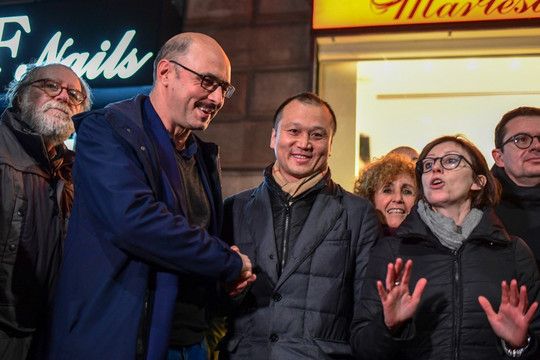Beyond Marco Polo – China and Italy’s new ties
In March 2019, Chinese President Xi Jinping’s two-day state visit to Rome set in motion a series of economic and media cooperation agreements between the two countries. A total of 29 deals amounting to €2.5bn ($2.8bn) were signed during the trip and Italy became the first member of the G7 group to sign up to China's Belt and Road Initiative.
Nonetheless, the relationship between China and Italy was rocky In the early days of the virus, when Chinese state-owned website Global Times actually blamed the COVID-19 outbreak on Italy, twisting the words of Italian physician Giuseppe Remuzzi to broadcast a misleading statement on Chinese state broadcaster, CCTV, and its international arm, CGTN.
China’s strategy of blame was short-lived. China was one of the first countries to come to Italy’s aid with medical equipment and medical teams, and it wasted no time using that to recalibrate its image as friend and savior. China’s was able to share this narrative effectively through building strong connections with Italian media outlets after 2019, Sole 24 Ore signed an MOU with China Economic Daily, ANSA and Chinese state media agency Xinhua signed an accord to launch the Xinhua Italian Service and other MOUs were made between China Media Group and Rai, Mediaset, and Class Editori. These agreements, as well as public diplomacy and social media, allowed China to pump out a relentless flow of symbolic messages of solidarity and commitment toward Italy.
In a demonstration that public relations was valued higher than genuine assistance, China’s actual contribution of protective equipment and medical supplies accounted for a very small portion of Italy’s imported materials, the majority came from the EU. By the end of March, France and Germany combined had donated more masks to Italy than China, and Austria was up on China by 1.6 million.
While some polls have indicated a majority of Italians see the Chinese government in a positive light, the Italian-Chinese relationship remains complex, mercurial and significant both countries.

